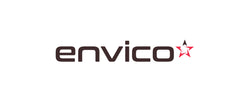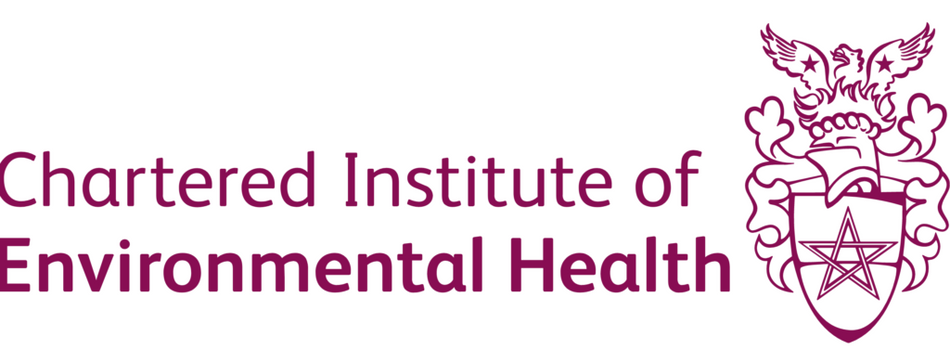756 Results
First Aid Training Courses for Workplace Safety and Emergency Response
Find the Right First Aid Training Course for Your Workplace
Discover the essential life-saving skills with our comprehensive First Aid courses. Whether you're a concerned parent, a dedicated professional, or simply want to be prepared for unexpected emergencies, our courses provide hands-on training and up-to-date knowledge. These First Aid courses cover a range of scenarios, from basic CPR and wound care to more advanced techniques. Gain confidence in your ability to respond effectively in critical situations. Empower yourself with the skills that can make a difference. Enrol in a First Aid course today and be ready to be a proactive and capable first responder in any unforeseen circumstance. Your preparedness can be a lifeline – be the one who knows what to do when it matters most.
Workplace First Aid Regulations: What Employers Must Know
In the UK, workplace first aid regulations are governed by the Health and Safety (First-Aid) Regulations 1981. These laws ensure that employers provide adequate and appropriate equipment, facilities, and personnel to deliver first aid to employees if they become injured or ill at work.
Failing to meet these legal obligations can result in serious consequences for both employees and employers. Understanding your responsibilities as an employer is essential for maintaining a safe and legally compliant work environment.
What Are the Legal Requirements for Workplace First Aid?
According to UK law, all employers—regardless of the size or nature of their business—must:
- Carry out a first aid needs assessment
- Appoint a designated person or first aider
- Provide first aid equipment and facilities
- Inform employees of first aid arrangements
If your business involves higher-risk activities (e.g. construction, manufacturing, or warehousing), you'll likely need trained first aiders on site and additional provisions such as multiple first aid kits, eye wash stations, or automated external defibrillators (AEDs).
First Aid Needs Assessment: Your Starting Point
The first step to compliance is conducting a first aid needs assessment. This process helps identify the level of risk in your workplace and determines what type of first aid provisions are required.
Factors to consider include:
- The number of employees on site
- The nature of your work (e.g. high-risk vs. low-risk)
- The layout of your premises
- Previous accident history
- The needs of remote or lone workers
This assessment should be reviewed regularly—especially after an incident or operational change.
Who Can Be a Workplace First Aider?
A workplace first aider must have undergone appropriate training and hold a valid certificate issued by a recognised provider. The most common qualifications include:
Emergency First Aid at Work (EFAW) – Suitable for low-risk environments
First Aid at Work (FAW) – Recommended for higher-risk industries
Additional training may be necessary for roles such as Mental Health First Aiders or Paediatric First Aid those responsible for paediatric care.
Penalties for Non-Compliance
Not following first aid regulations can lead to fines, enforcement notices, or prosecution from the Health and Safety Executive (HSE). Most importantly, it can jeopardise the wellbeing of your employees and damage your company’s reputation.
Related Content
Workplace First Aid Requirements for UK Employers
All UK employers have a duty of care to ensure adequate first aid provisions are in place. Whether you manage an office, a factory, or a construction site, you must ensure that employees have immediate access to first aid assistance in the event of injury or illness.
These requirements are outlined in the Health and Safety (First-Aid) Regulations 1981 and apply to all workplaces—no matter the size or sector.
Minimum First Aid Requirements for Every Workplace
Here are the minimum requirements all UK employers must meet:
- A suitably stocked first aid kit
- An appointed person to take charge of first aid arrangements
- Information for employees about first aid procedures
- If your needs assessment shows higher risks, you may need qualified first aiders and specialised equipment.
Who Needs First Aid Training in the Workplace?
The level of training required depends on your risk assessment:
- Low-risk workplaces: One person trained in Emergency First Aid at Work (EFAW) may suffice.
- High-risk workplaces: Require employees trained in First Aid at Work (FAW), a more in-depth 3-day course.
- Lone or remote workers: Need specific first aid arrangements and may require personal kits or digital communication support.
Appointed Persons vs. Trained First Aiders
An appointed person is responsible for maintaining the first aid kit and calling emergency services if needed. They are not required to have formal training. However, in higher-risk workplaces, an HSE-compliant trained first aider is mandatory.
Regular Reviews and Refresher Courses
First aid needs can change over time. Regular reviews are essential, especially if:
- You expand your workforce
- Change your work processes
- Relocate or restructure your premises
Refresher courses help ensure your first aiders stay sharp and confident.
Train Your Staff with Certified First Aid Courses
We provide a full range of first aid training short courses, tailored to suit your organisation’s specific needs. All our trainers are fully accredited, and our courses meet HSE guidelines.
- Emergency First Aid at Work
- First Aid at Work (3-Day)
- First Aid at Work Refresher
- Mental Health First Aid (MHFA)
- Paediatric First Aid
Book Your First Aid Course Today!
Defibrillator (AED) training teaches individuals how to recognise sudden cardiac arrest and safely use an Automated External Defibrillator (AED) to deliver a life-saving shock. These short courses provide step-by-step instruction on how to operate an AED, perform effective CPR, and coordinate with emergency services.
The training follows UK Resuscitation Council guidelines and is suitable for both first-time learners and those refreshing their knowledge. AED courses are ideal for workplace first aiders, teachers, security staff, and members of the public who want to be prepared in high-stress situations.
Knowing how to use a defibrillator can make the difference between life and death—early defibrillation significantly improves survival rates in cardiac emergencies.
What Should Be in a Workplace First Aid Kit?
Your first aid kit should be stocked based on the findings of your first aid needs assessment. As a general guide, in low-risk environments—such as office or desk-based roles—a basic first aid kit might include the following essentials:
- A leaflet with general guidance on first aid
- Sterile plasters and dressings
- Bandages and eye pads
- Disposable gloves
- Antiseptic wipes
- Scissors and tape
- First aid guidance leaflet
Kits should be checked regularly and restocked as needed. Larger or high-risk workplaces may require multiple kits or additional equipment like burn dressings or defibrillators.
Workplace First Aid Courses
Vital skills and confidence needed to handle medical emergencies.
View CoursesBoost Visibility for Learners in This Category
Make sure your courses stand out to learners browsing this category. Capture attention, drive more enquiries, and grow your enrolments. Limited slots — act now!
Enquire NowStand Out and Attract More Enrolments
Ensure your courses appear at the top of this category, increase visibility, and draw more learners. Only a few spots left — secure your listing today!
Enquire NowFilter
- All Courses
-
Subjects
- Academic & Personal Development
- Accounting & Finance
-
Business, Management & Legal
- Administration
- Business
- Business Administration
- Business Analysis
- Business Management
- Change Management
- CMI
- Compliance
- Consulting
- Customer Service
- Cyber Security & Data
- Disability
- Discrimination
- Diversity & Equality
- Employment Law
- Facilities Management
- GDPR
- IIRSM
- ILM
- Insurance
- ISO
- IWFM
- Kanban
- Leadership & Management
- Management
- Office Skills
- Project Management
- Quality Assurance
- Risk Management
- Security
- Service Management
- SIA
- SIAM
- Team Leader
- VeriSM
-
Construction & Engineering
- Abrasive Wheel
- Asbestos
- Banksman
- BOHS
- CAT & Genny
- CCNSG
- CDM
- CITB
- Confined Spaces
- Construction NVQ
- Consulting
- CPCS
- Electrical
- Environmental
- EUSR
- Face Fit Testing
- Forklift Truck
- Gas
- Harness & Lanyard
- IPAF
- ISO
- Joinery
- Ladder & Stepladder
- LOLER
- NRSWA
- PASMA
- ProQual
- PUWER
- RIDDOR
- Scaffolding
- Smart Awards
- UKATA
- Waste Management
- Welding
- Working at Height
- Fashion & Beauty
-
Health, Safety & Care
- Abrasive Wheel
- Accident Investigation
- Asbestos
- BOHS
- CACHE
- Care
- CCNSG
- Childcare
- CIEH
- CITB
- Cleaning
- Compliance
- Confined Spaces
- COSHH
- Crowd Safety
- Driving
- DSE
- Electrical Safety
- Environmental
- Face Fit
- Fire Safety
- First Aid
- Food Safety
- Health and Safety
- Highfield
- HACCP
- Harness & Lanyard
- IEMA
- IOSH
- Ladder & Stepladder
- Legionella
- LOLER
- Lone Worker
- Manual Handling
- Medical
- Mental Health
- NEBOSH
- Noise
- Nursing
- NVQ Health and Safety
- PPE
- ProQual
- PUWER
- RIDDOR
- Risk Assessment
- Scaffolding
- SPA Passport
- Slips, Trips & Falls
- Smart Awards
- Social Care
- UKATA
- Working at Height
- Hospitality, Travel & Tourism
- HR, Sales & Marketing
- IT & Analytics
- Media, Arts & Creative Skills
- Operations & Purchasing
- Project Management
- Secretarial, PA & Office Skills
- Software & Web Development
- Sports & Fitness
- Teaching & Childcare
- UK Courses
- International Courses
- About
- FAQ
- Contact
- Promote Your Courses









